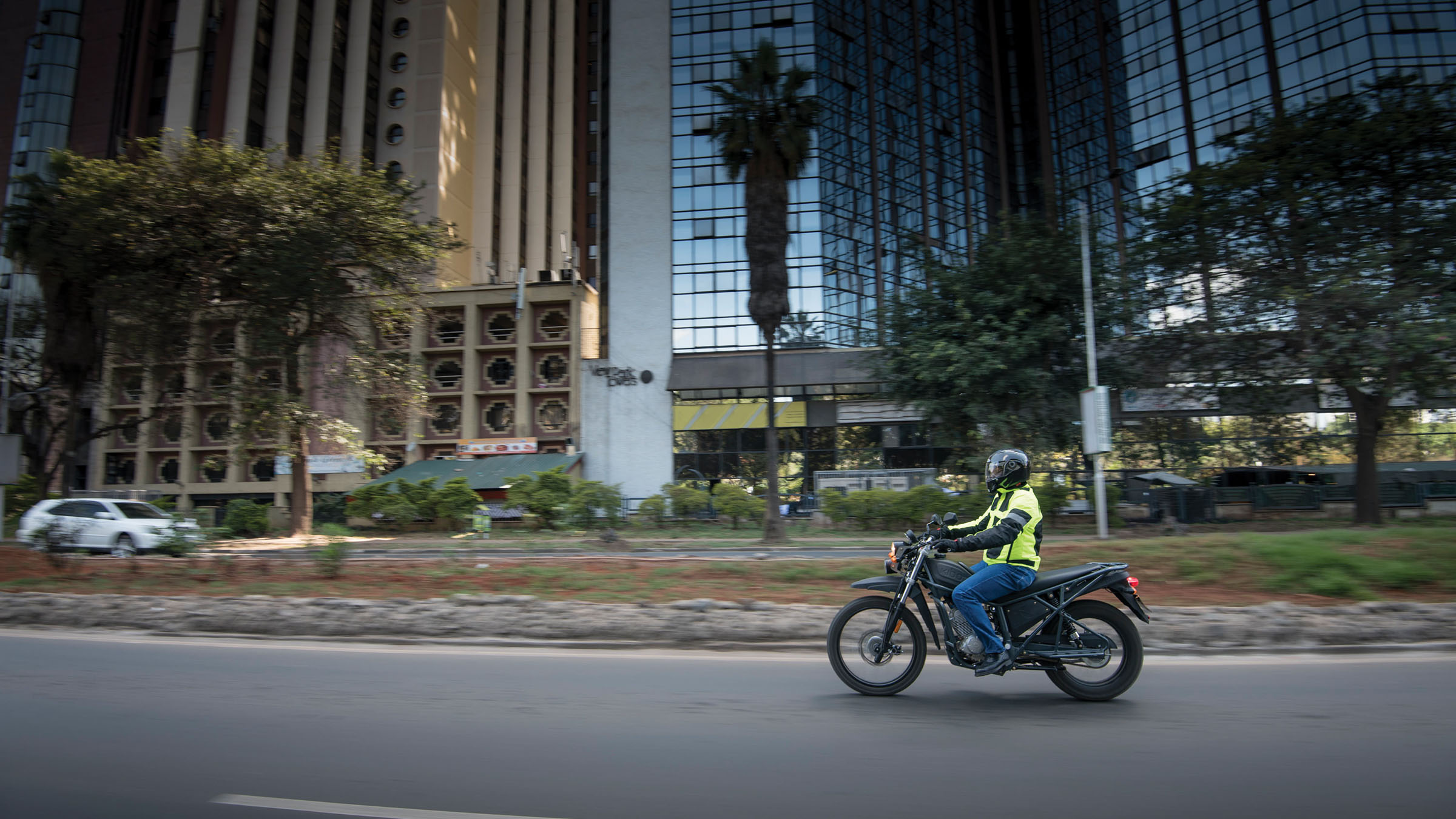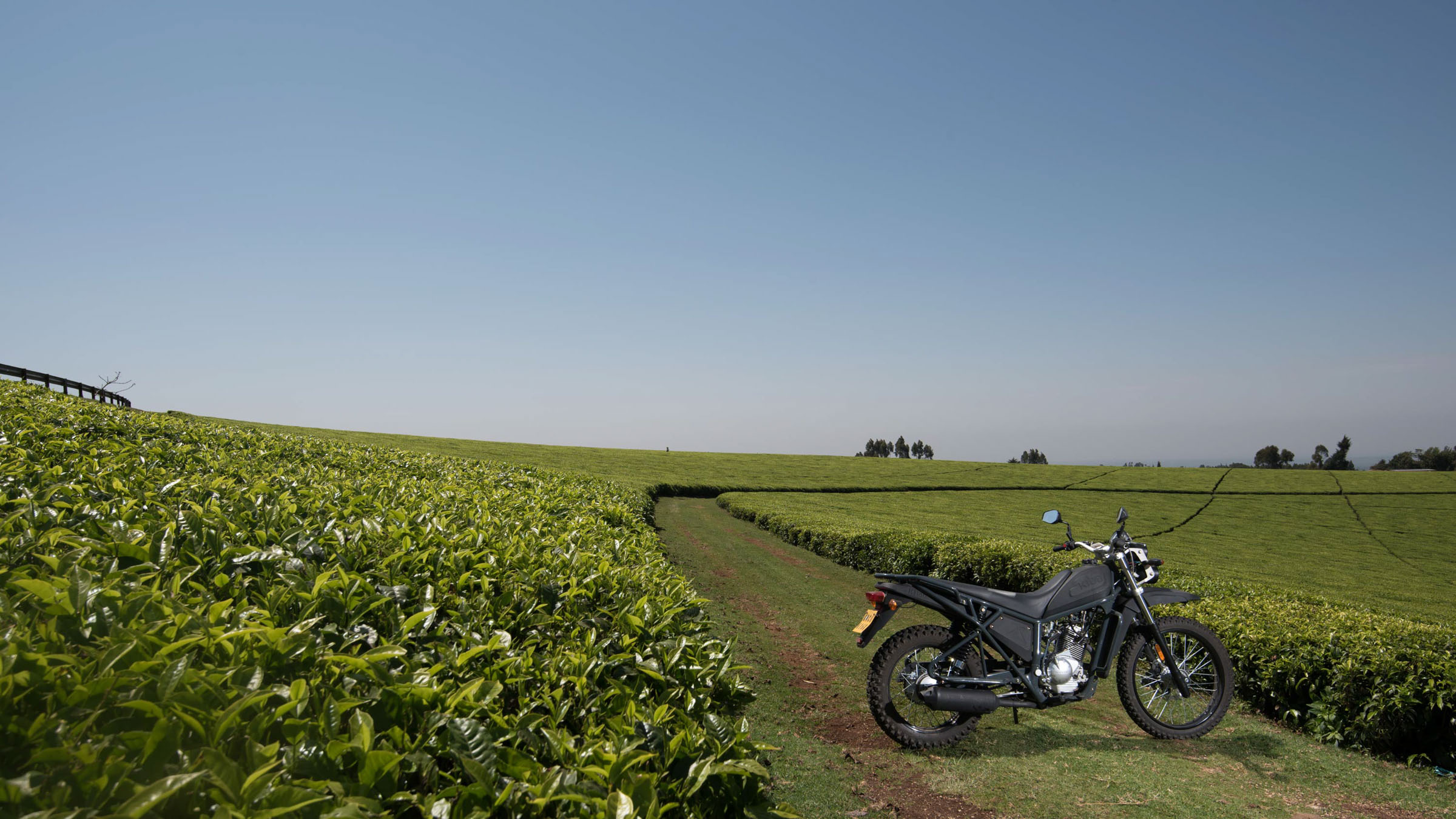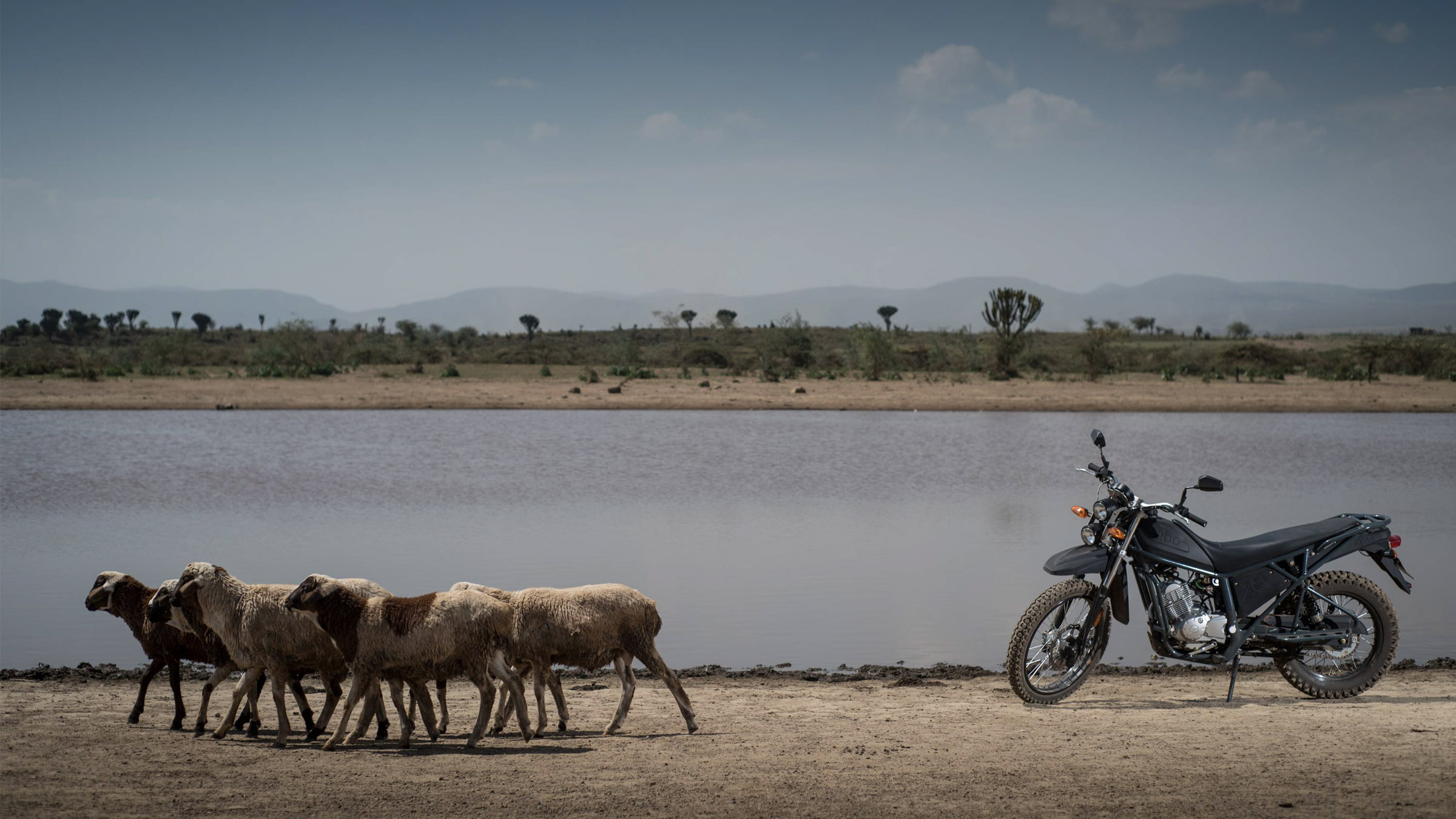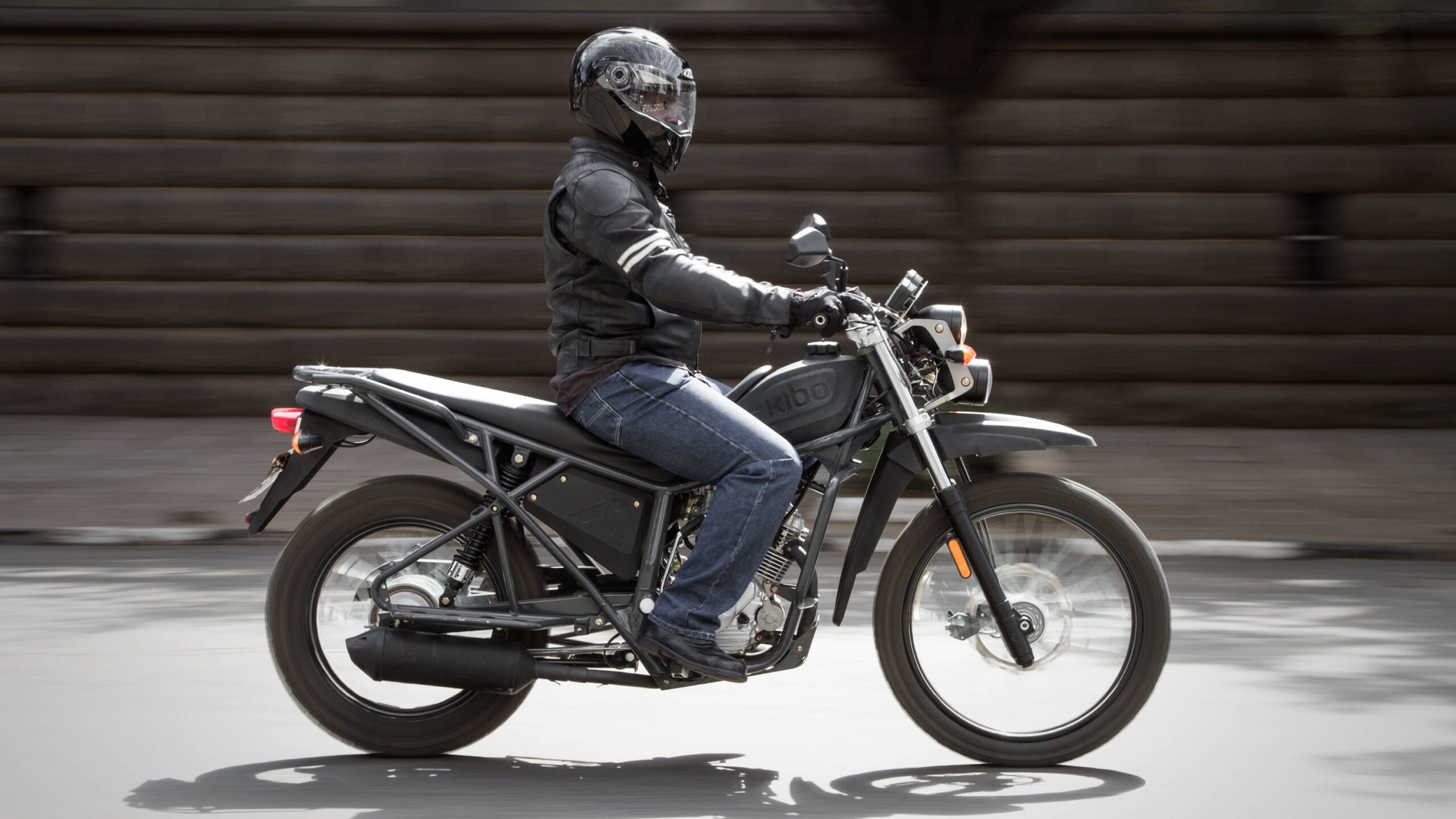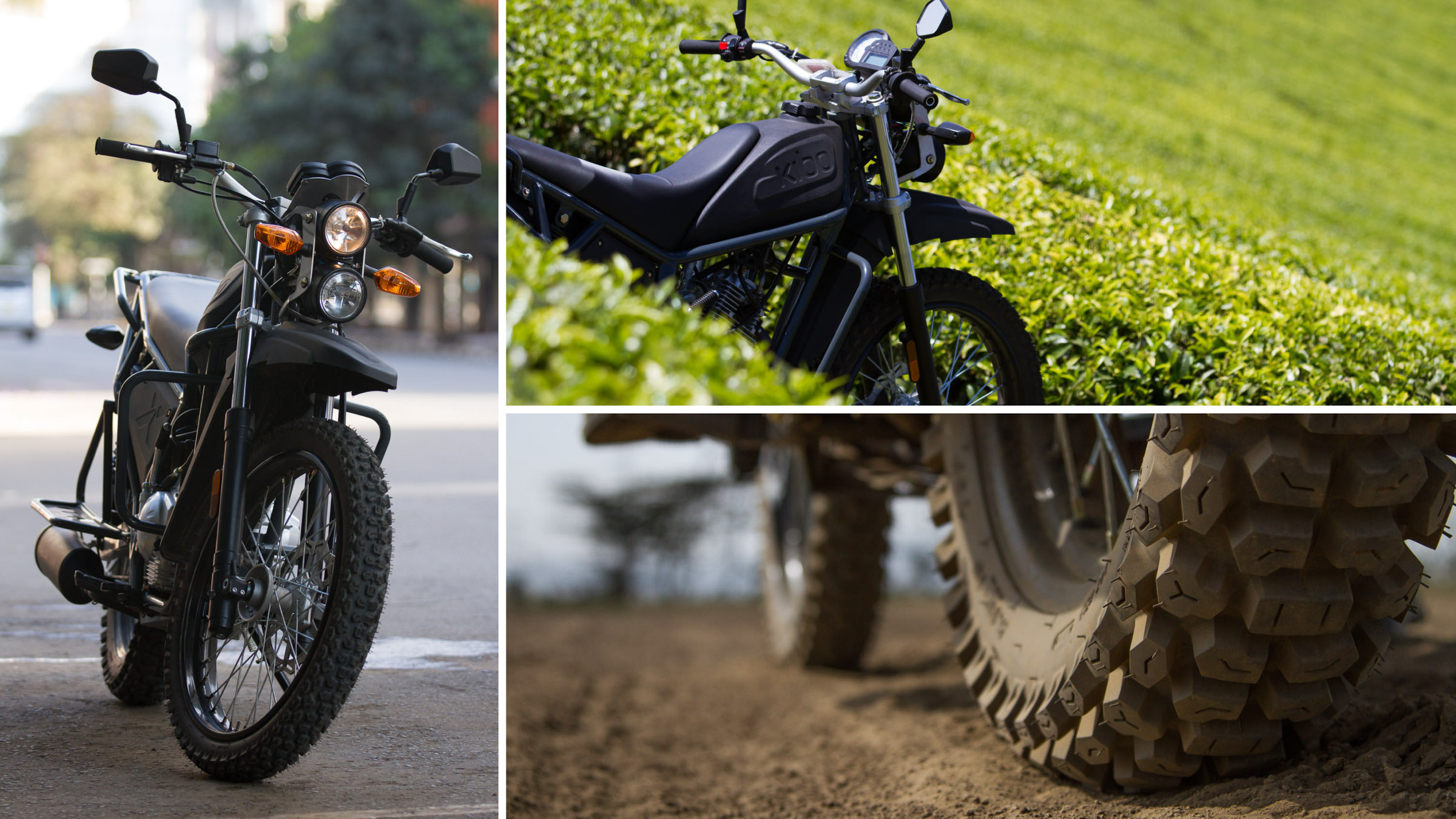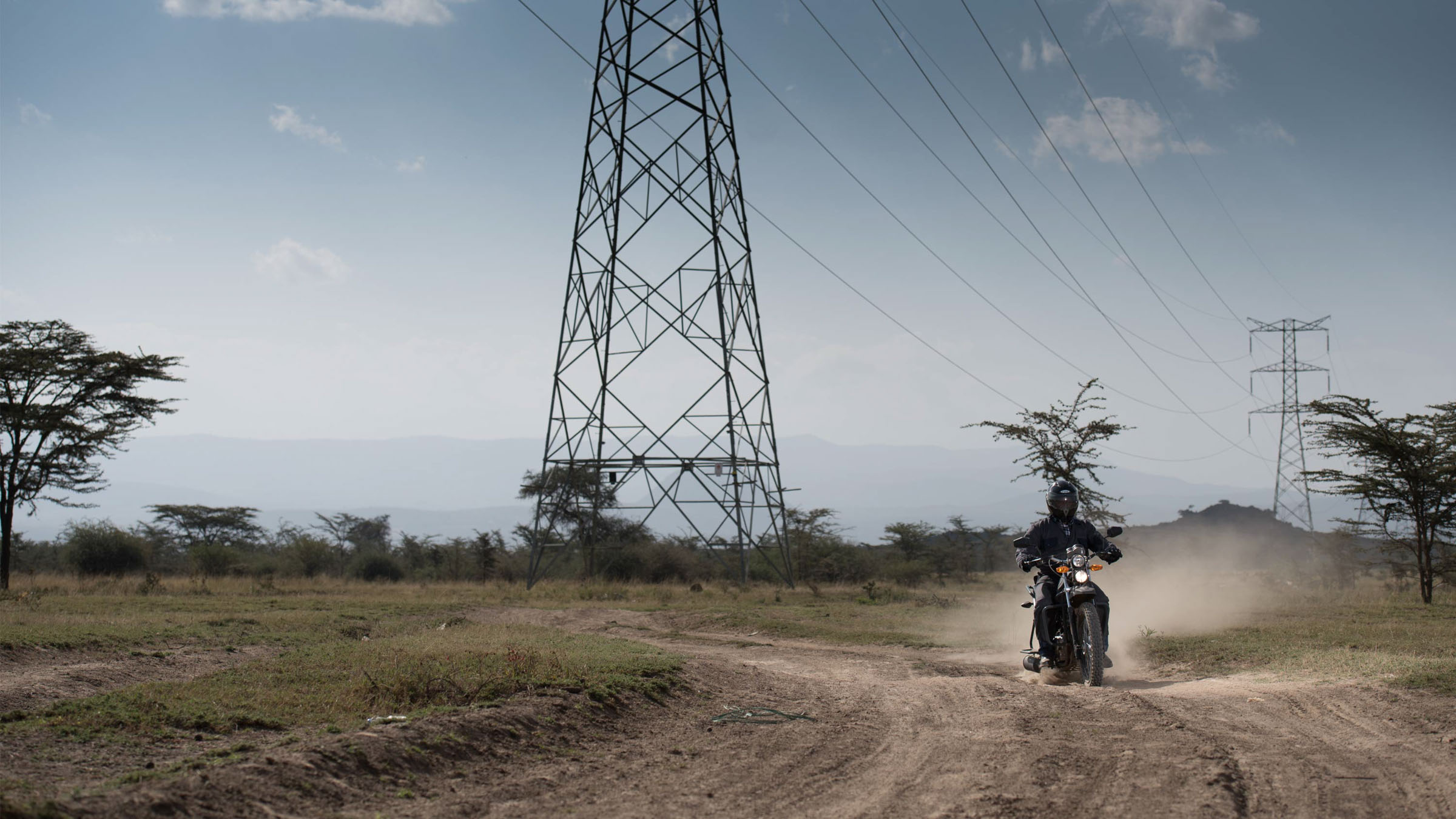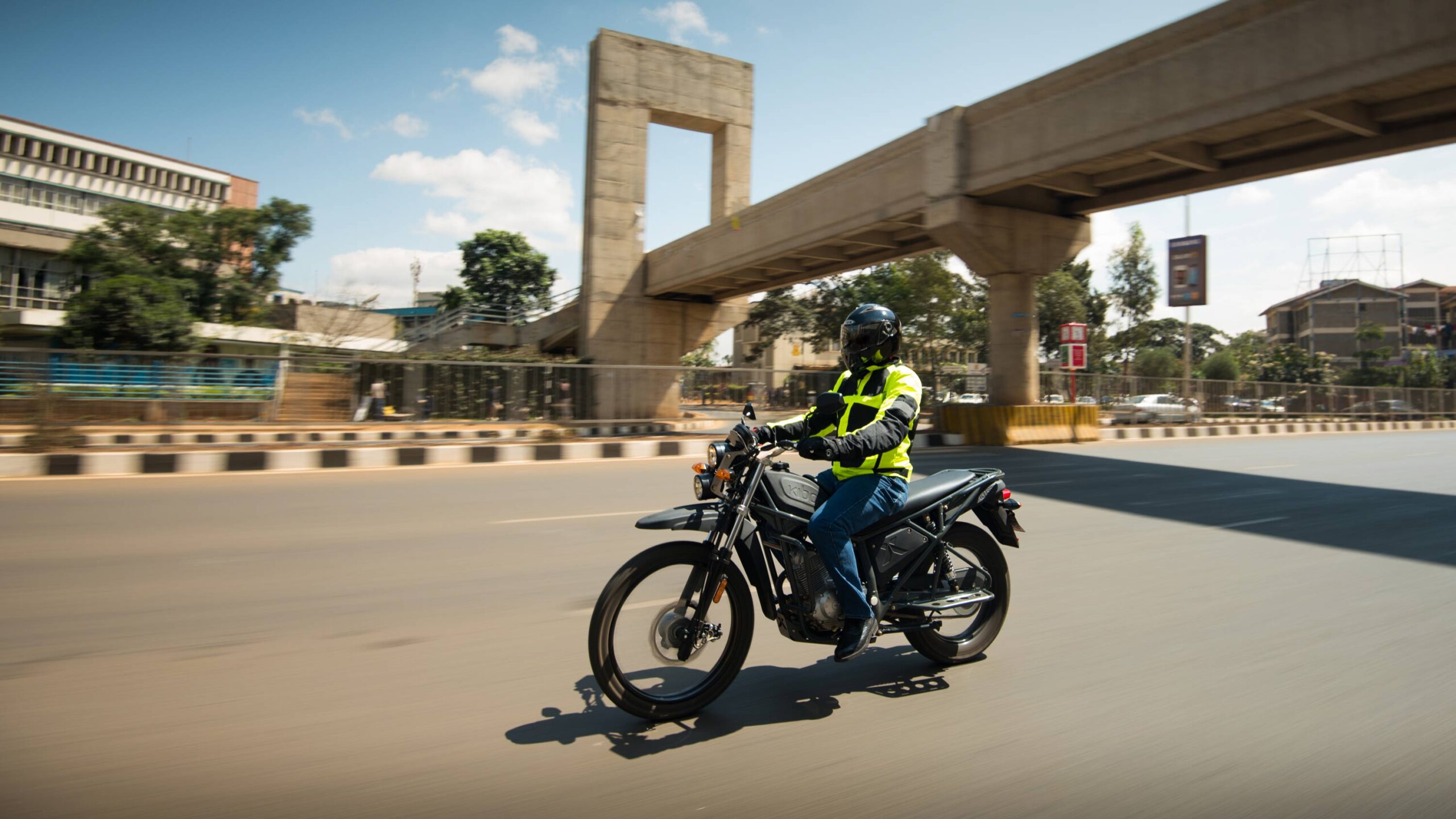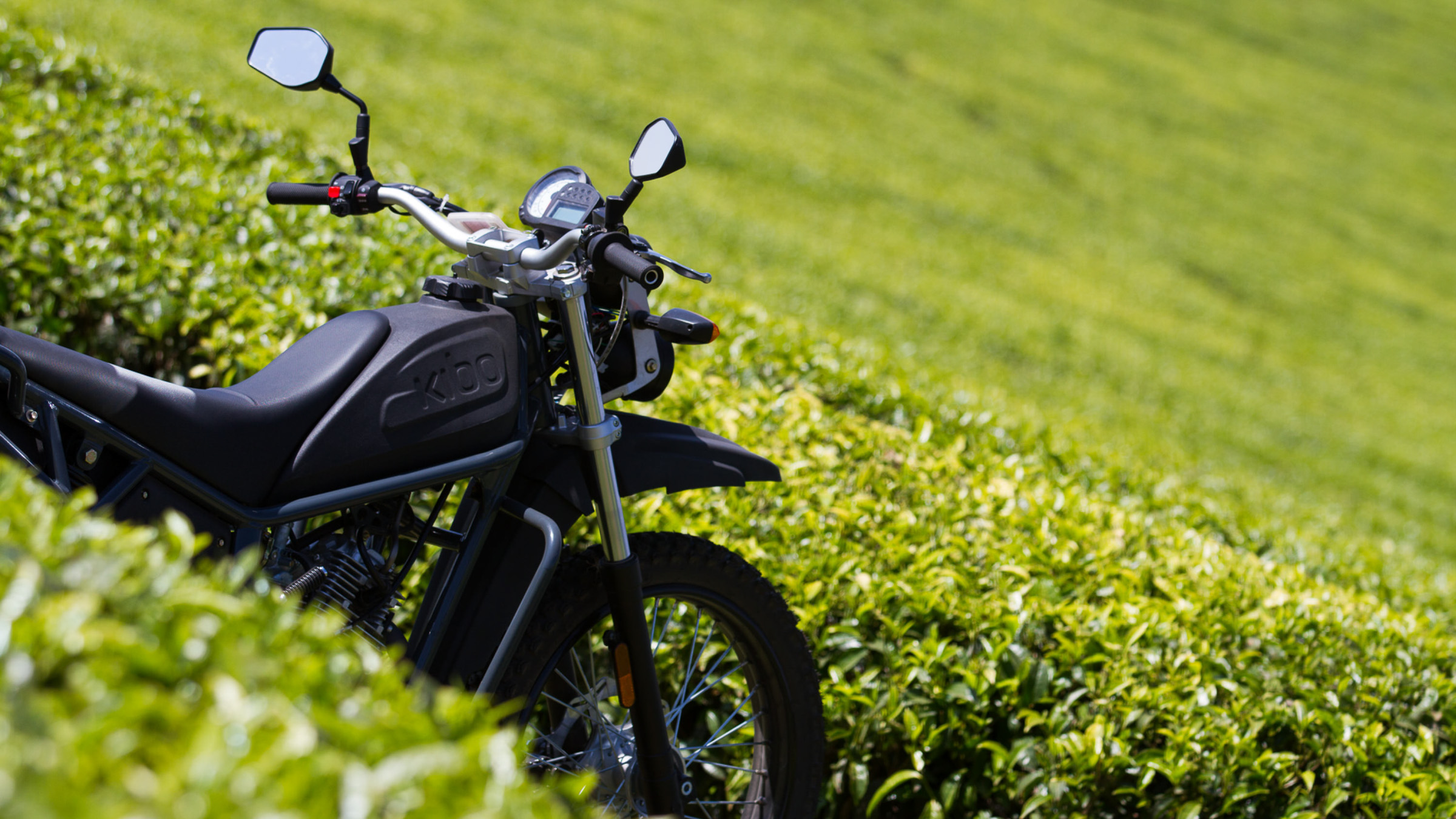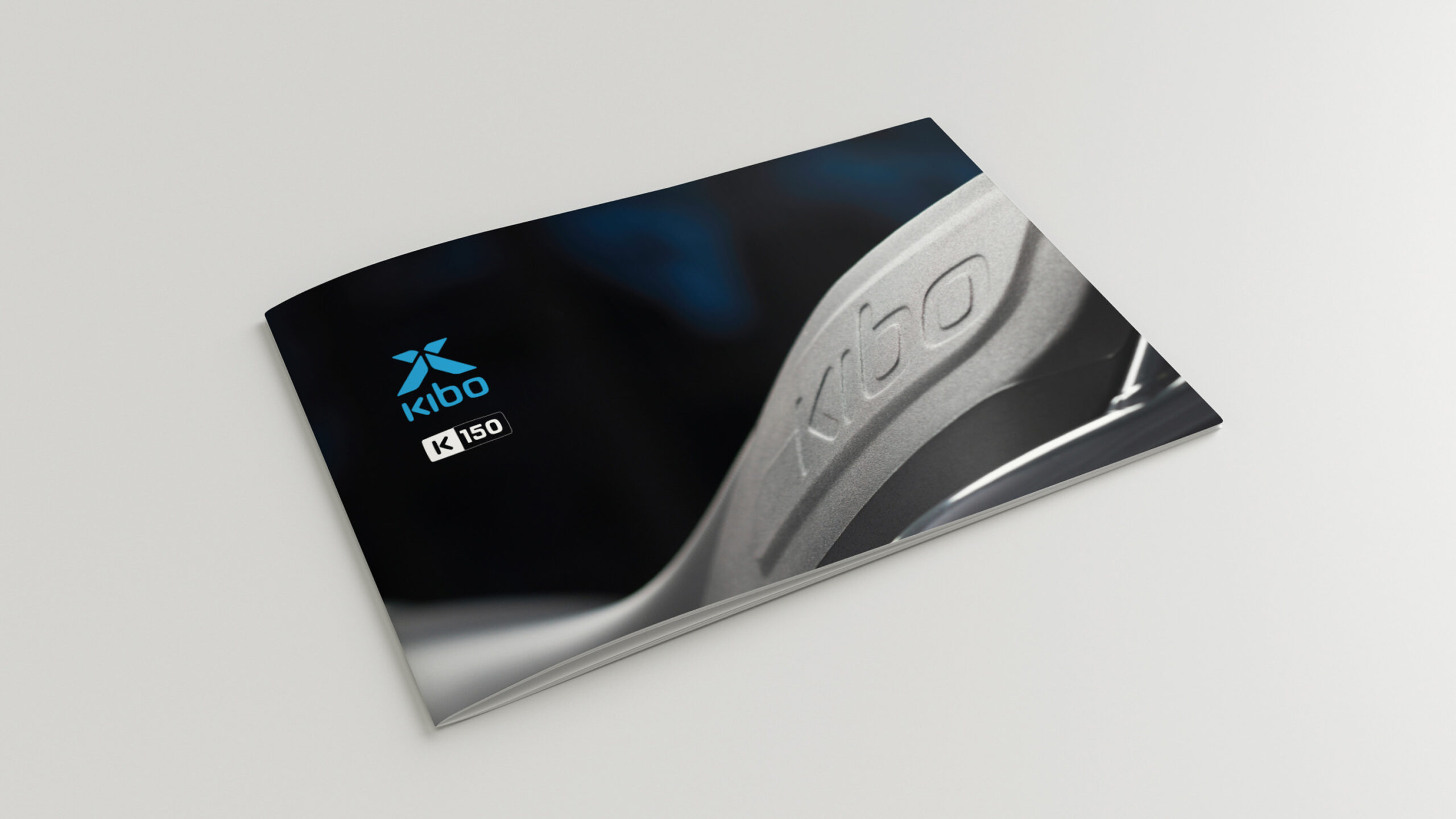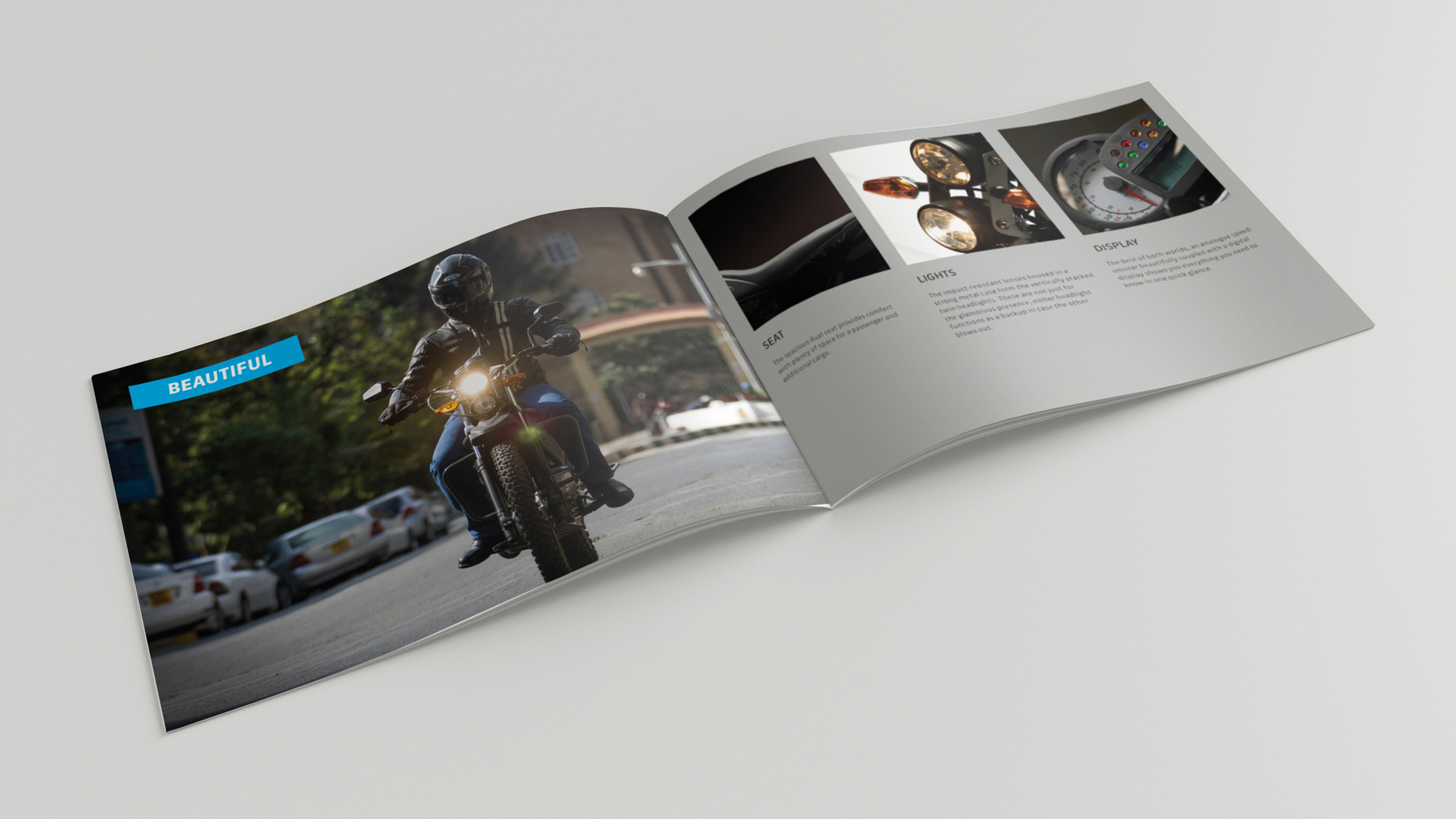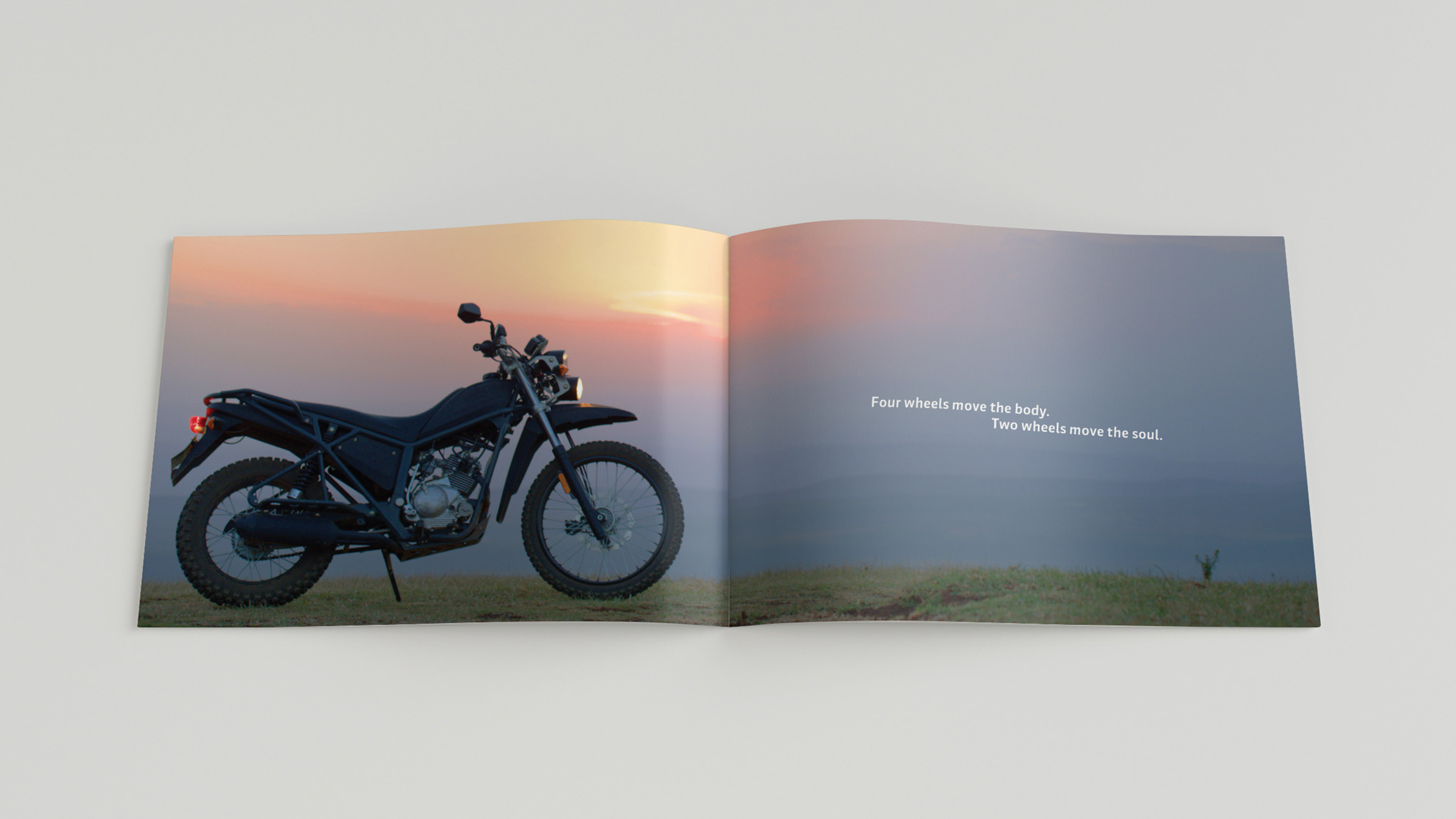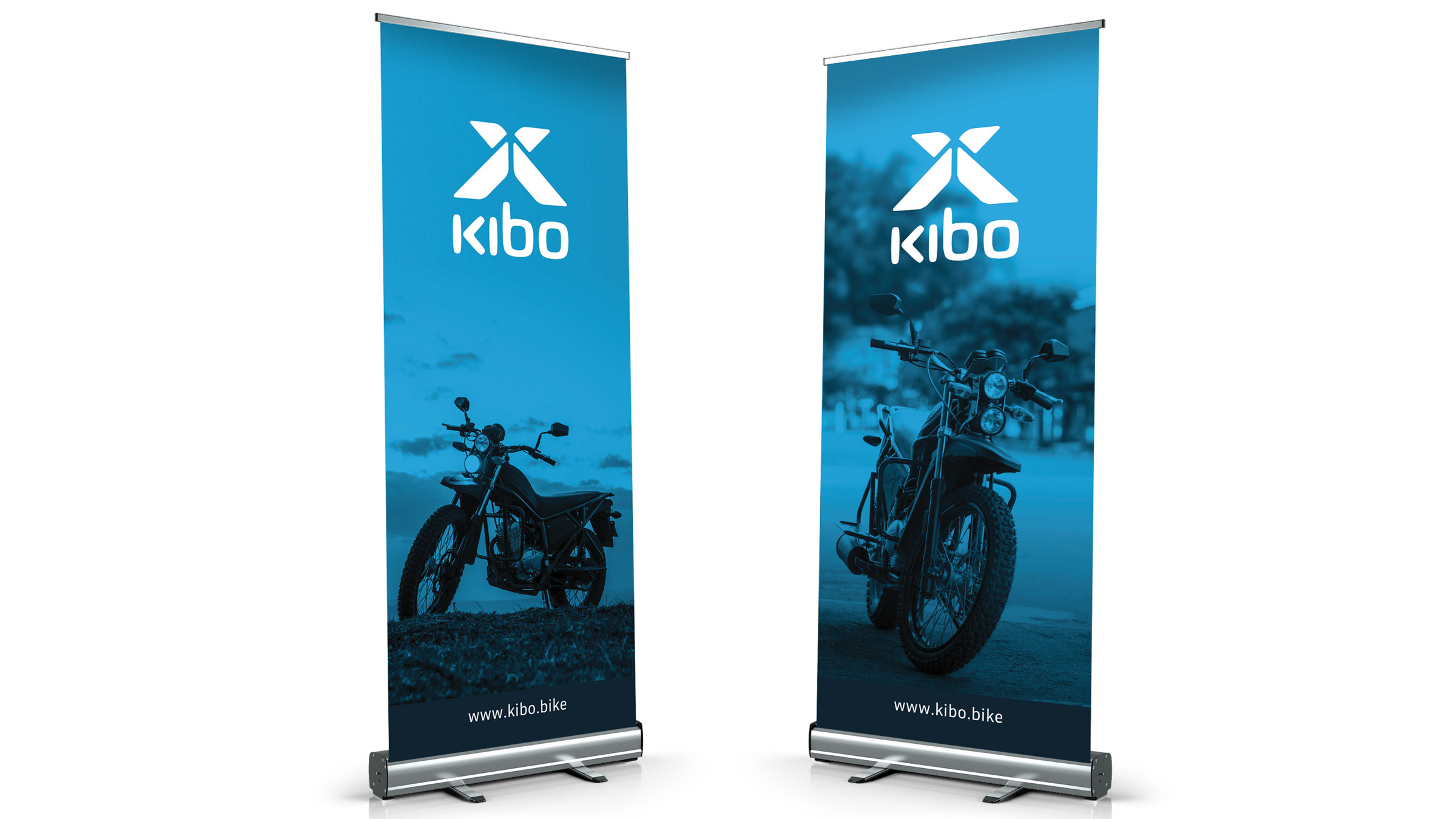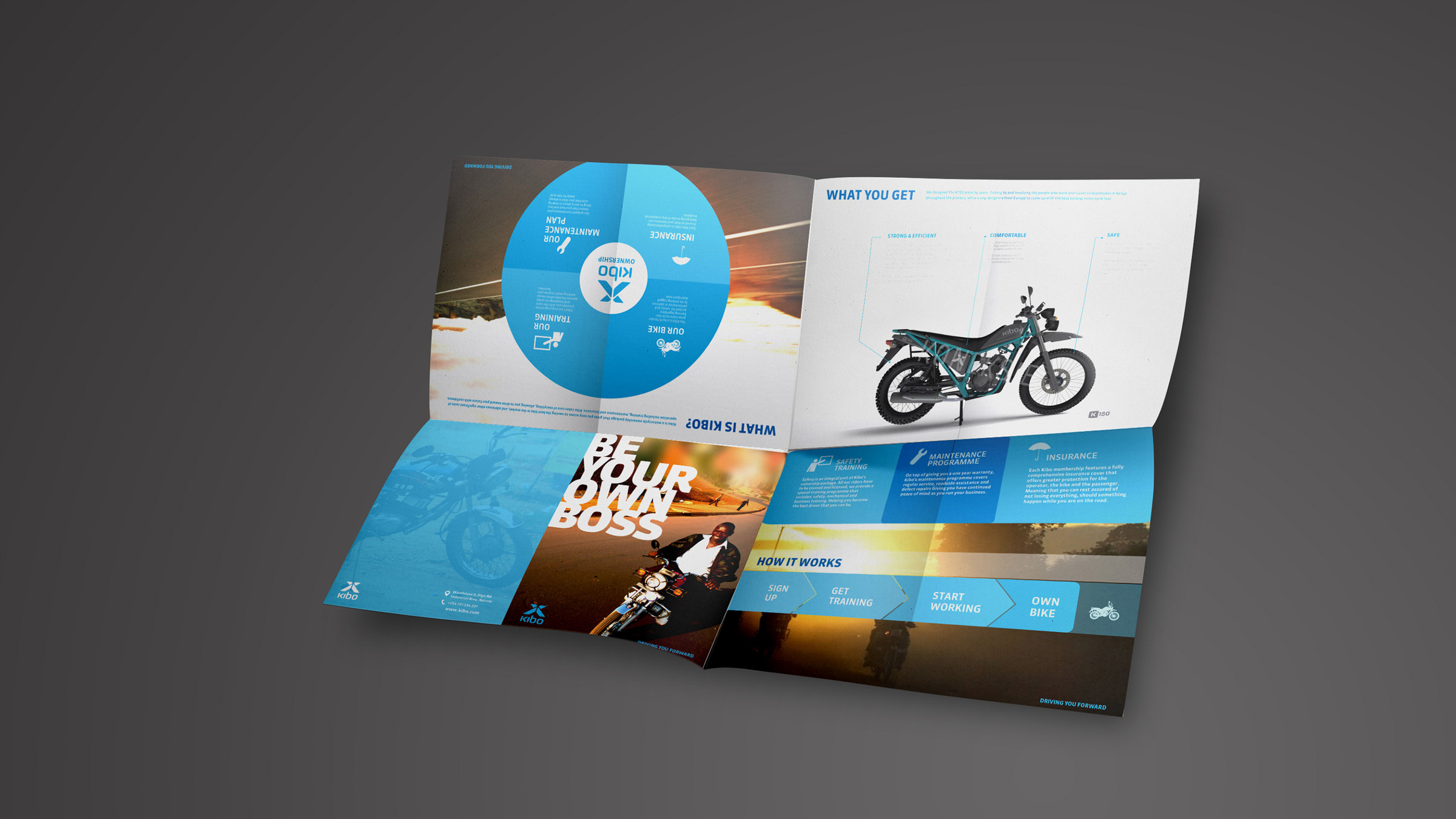CASE STUDY – Koneksie BV / Kibo
Getting Africa home.
Changing motorised transport in Africa by providing access to good motorcycles for bodaboda and other uses. Full business innovation process to create the product, design the service delivery and ownership programmes.
Opportunity
Kibo is a Kenyan motorcycle company, that designs and manufactures purpose-built motorbikes, engineered to withstand the demands of tough usage on challenging terrain. In 2014, Koneksie BV approached ARK to develop this mobility concept, and design a product and service that could provide solutions for last mile motorised transport in many parts of Africa.

We embarked on all-encompassing and inclusive design approach that brought together bodaboda riders (motorcycle taxis), passengers, and personal users to create a mobility ecosystem that was convenient, safer, smarter, and cooler.
This approach was central to the development of a business model and product, designed to bring success to entrepreneurs, safety and comfort to passengers, and an ambitious initiative to lay the groundwork in formalising the bodaboda sector at a National Policy level.
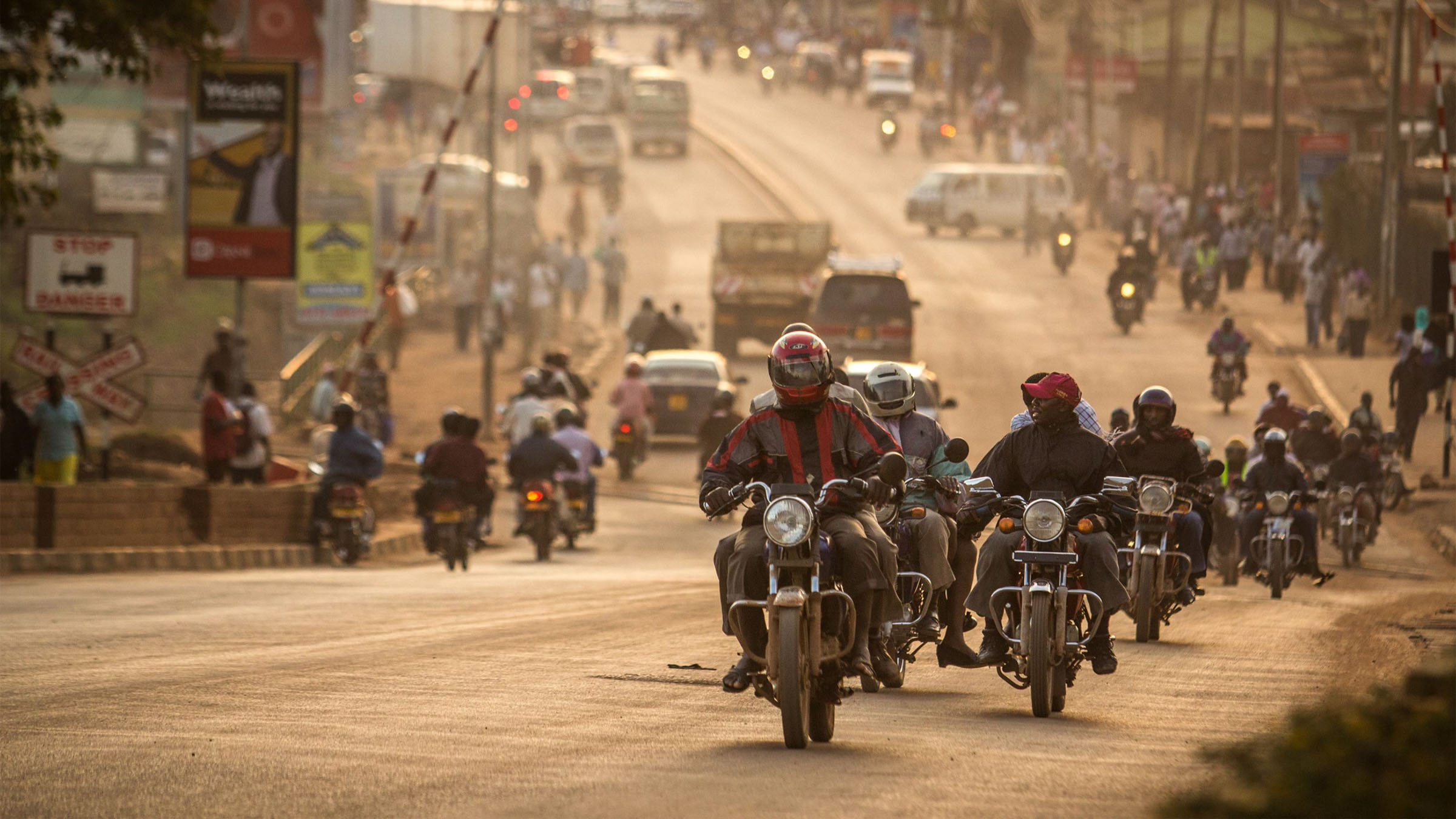
Product and Service Design
Field research
Our human-centered design method commenced with carrying out various discovery exercises, including field research, interviews and observation studies. The objective was to develop deep understanding and empathy for the industry, and the daily lives of the people dependent on it.
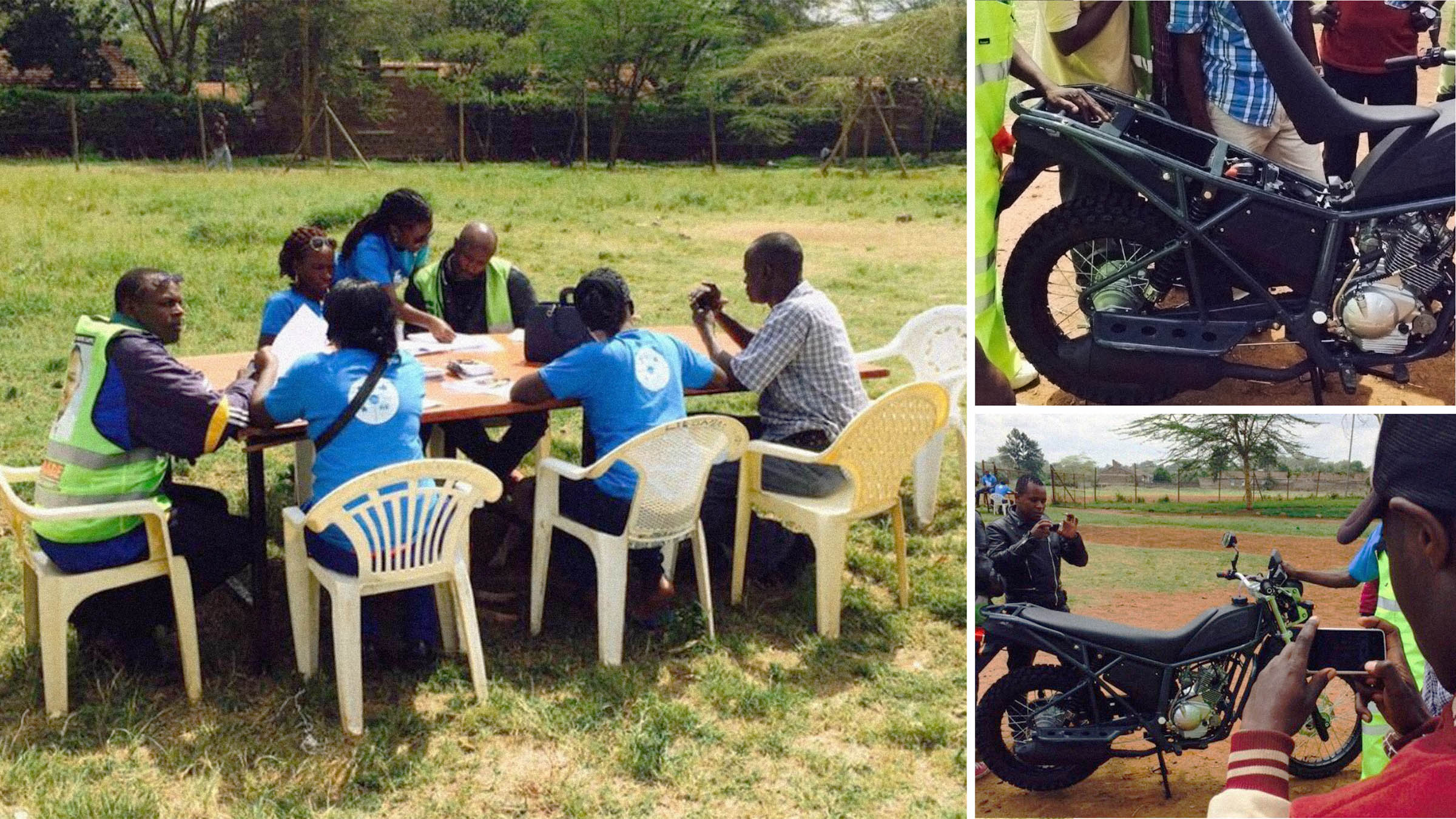
Prototyping
Together with the masterful industrial design client team out of Amsterdam, we guided and facilitated numerous workshops for prototype testing with riders, passengers and other key persona groups. This would guide the development of a remarkable product that would address business objectives, and ensure user needs were effectively met through a functional and pleasant experience.

Brand Driven Innovation
Strategic features & functions were integrated into the motorbike to meet our key objectives.
Brand Strategy & Positioning
Many travellers choose to use public transport (matatus and buses) for longer distances, and the bodaboda for the last portion of the journey. This is mainly how bodabodas address the “mobility gap“.
Motorcycles are an extremely versatile and efficient mode of transport for people traveling short distances within a city or town, to and from a shopping centre, or longer distances that are not covered by other forms of transport. Prior to the proliferation of bodabodas, there was little to no other transport alternatives covering these vast expanses beyond a long trek.
Kibo’s value inherent in this part of the journey would be increased through:
- security from station to door
- efficient haulage of small cargo loads
- efficiency in the speed of travel compared to cars in traffic
- instant exclusive charter availability

System Design
An Economic Ecosystem
The brand would extend beyond just the motorbike. The extended brand represents an integrated package with unique services that were designed to bring the total transport experience to fruition. This is achieved by dynamically and creatively engaging and solving multiple industry problems where they occur.
We developed an innovative service delivery model that included owner financing, insurance, rider training, a strong bike coupled with servicing and spares, and demand drivers for this economic ecosystem. These were paramount to the success of the overall brand strategy, and in ensuring a sustainable entrepreneurial ecosystem for last-mile transportation.
Customer Journey Design
We developed customer journeys, as process flows that show different stages in a product/service cycle, mapped to what users think, feel, and do.


Brand Creation
We wanted to create a new age solutions brand that challenged the current norms with dynamism and new ideas. A human brand for modern times, and a modern business that cares about people’s lives.
Naming
We wanted a brand name that was timeless and connected beautifully with the product and service model. One that stands out, but also fits. We developed the KIBO name, derived from Kiswahili origins and phonetic structures. It had a playful kick which worked well with the bike’s character, and a much sought after duo-syllable phonetic that could be visually expressed and extended.
Identity
Our brand identity for Kibo took into consideration the overarching concept of unrestrained mobility, progressive movement, and incorporated elements from the bike’s geometry. Furthermore, the brand needed to work as well on-screen as off-screen.
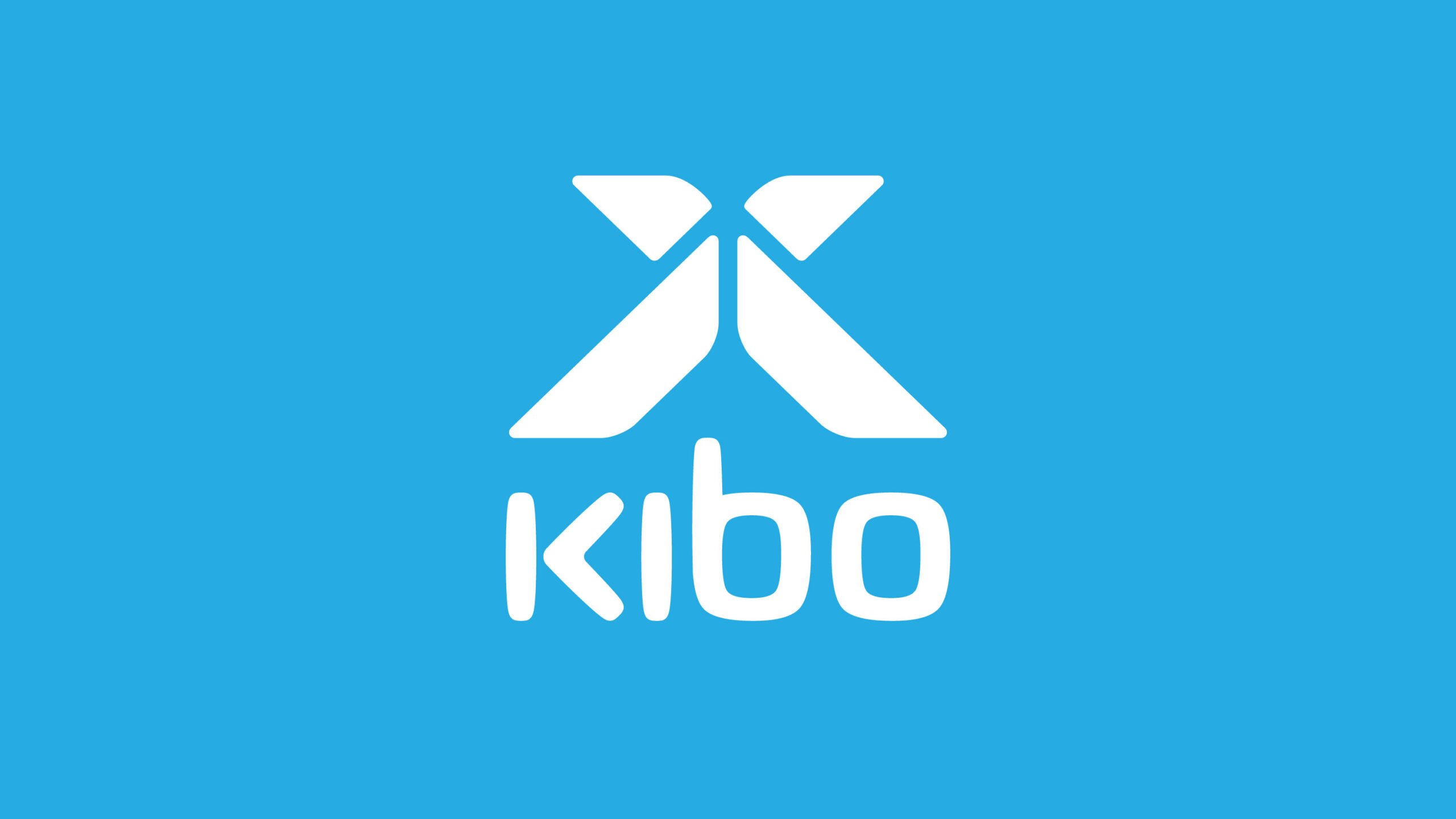

Brand Architecture
We further developed the brand architecture and naming system to encompass the parent Koneksie brand, the Kibo product brand, as well as model variants of the motorbike based on their CC.

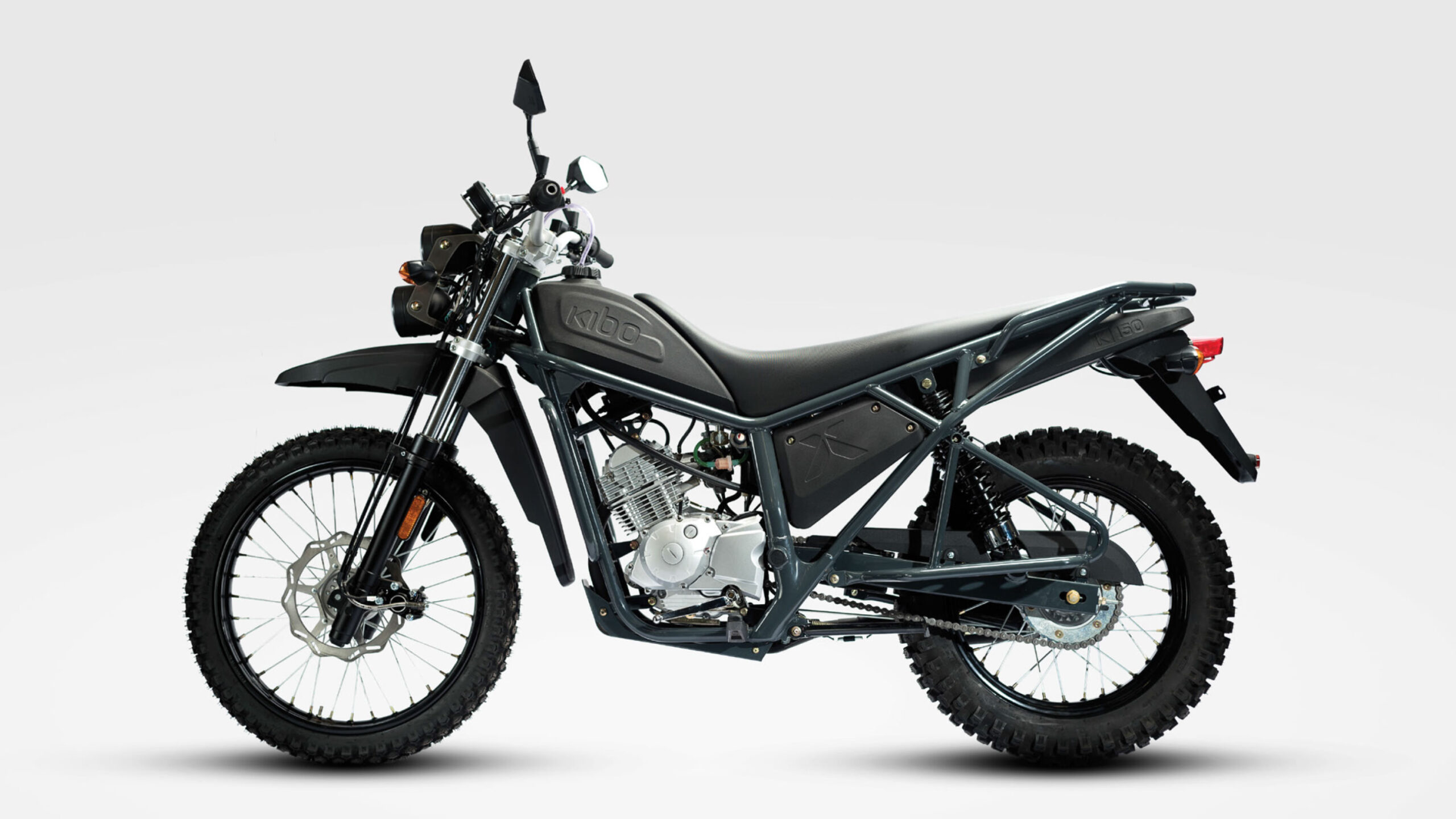


Launch & Storytelling
Our production team took got to have some fun as well, taking the brand new Kibo K150 out into the urban and rural wild for the first time to shoot film and stills.
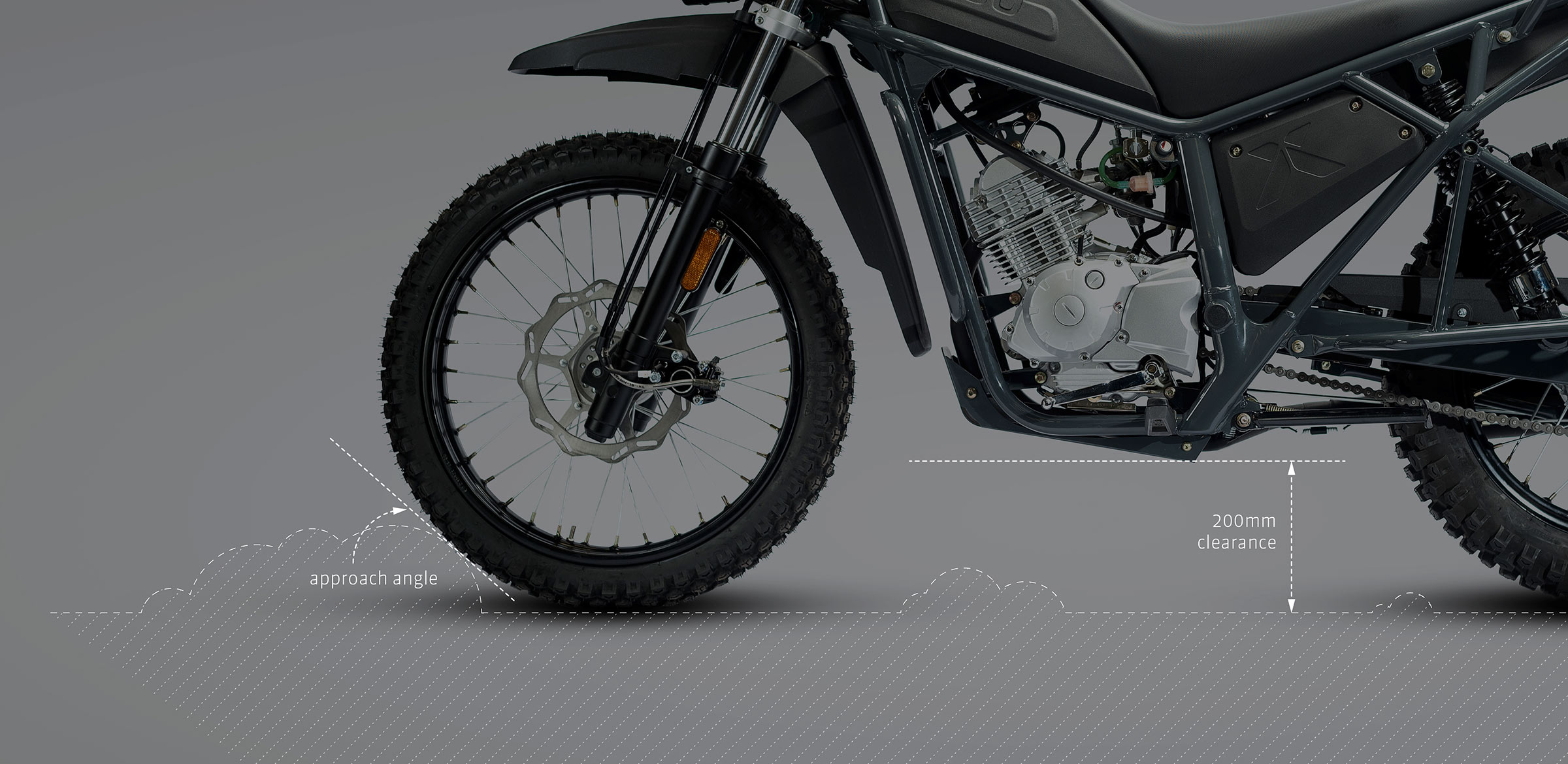
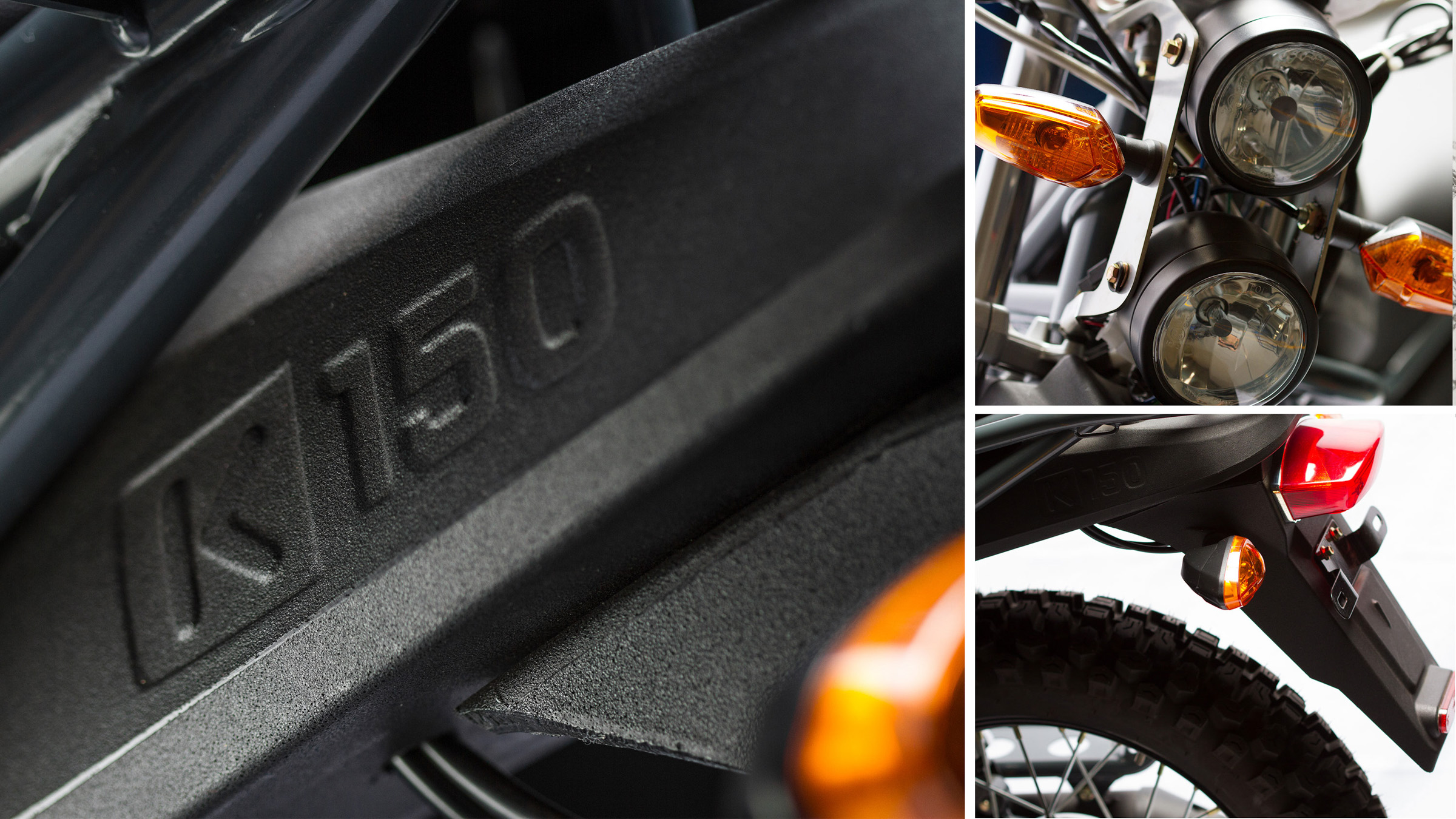
Next, the sales and marketing material was developed for launch, for digital and event-based communication.
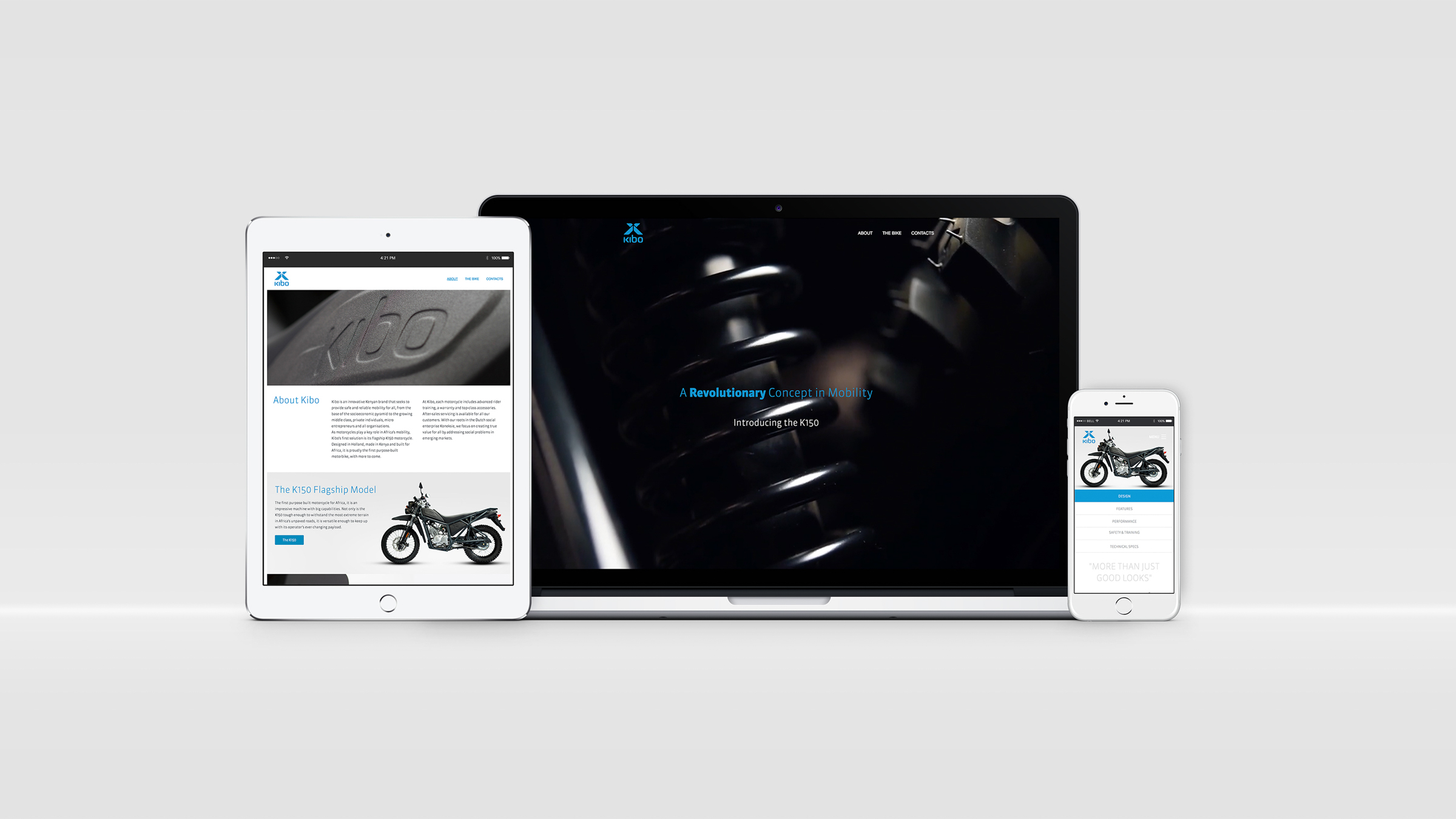
As a result of close partnership and innovative thinking – Kibo was created – Kenya’s first automotive product launched at scale in the retail market.

